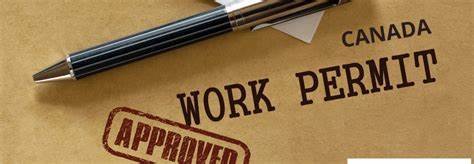Contracts are legally binding documents. While they may be drawn up with the best of intentions, they can still be breached. When this happens, it can be incredibly stressful and potentially damaging to all involved. Luckily, you can take steps to protect yourself and your business.
In this article, we’ll discuss 5 steps you can take after a breach of contract. From understanding legal options to preparing for a potential dispute resolution, you’ll be better equipped to handle a breach of contract and minimize its effects.
1. Review the Contract
When reviewing the contract, you should pay close attention to its provisions, including any addendums or attachments. It’s essential to understand your rights and obligations under the contract and any potential remedies you may have in case of a breach. This includes understanding the notice requirements, which are often included in the contract, and the timelines for taking action to resolve the breach.
In some cases, you should also review the contract with your attorney to ensure that you are informed of your rights and obligations and can take any necessary action. An attorney can also provide valuable guidance on how best to respond to a breach of contract and assist in preparing legal documents.
When reviewing the contract, it is important to identify any inconsistencies between the agreement and the facts of the case. This may include a failure to comply with the terms of the contract, an improper performance of the contract, or a failure to perform an obligation under the contract. Once you have identified any inconsistencies, you should contact the other party and attempt to resolve the breach.
2. Notify the Other Party
When a contract has been breached, it is essential to notify the other party and provide them with written notice. This is a critical step to ensure that the other party is aware of the breach and can take the necessary measures to correct it.
Written notification should include a clear description of the breach, the date, and a demand for the other party to fulfill their obligations under the contract. This can help protect both parties’ rights and ensure that the breach of contract is addressed on time.
When sending the notification, it is important to ensure that it includes the exact details of the breach and that it is sent promptly. It is also essential to provide a clear explanation of the violation and to make it clear to the other party what the consequences of failing to address the breach would be.
If a response is not received from the other party or if the breach is not addressed satisfactorily, it may be necessary to take legal action to ensure the contract is fulfilled. This can include taking the other party to a court or seeking a resolution through a mediator or a different third-party dispute resolution process.

3. Investigate the Breach
A breach of contract can have a variety of causes and can be incredibly damaging for both parties involved. As such, businesses need to understand the steps to take after a breach of contract is identified.
The first step in any breach of contract investigation is to collect evidence. This can include emails, invoices, contracts, and other documents related to the breach. Any evidence collected should be stored securely to ensure that it is not tampered with or destroyed. Additionally, it is essential to interview witnesses who may have seen or heard any conversations related to the breach. This can provide valuable insight into what may have occurred and can be used to identify any potential issues.
Once the evidence has been gathered, it is essential to review it to identify any potential breach of contract. It is also important to consider any legal implications resulting from the breach. If a violation of any laws has occurred, it is important to seek legal counsel to ensure that all parties are held accountable for their actions.
4. Negotiate a Resolution
Once the facts and circumstances of a breach of contract have been established, parties can negotiate a resolution. This may include amending the contract, settling the breach, or paying damages. When negotiating a resolution, it is crucial to consider the interests of all parties involved.
When negotiating a resolution, parties should use the same tactics in any business negotiation. This includes setting realistic expectations, remaining open to compromise, and being conscious of the timeline. Parties should also be willing to listen to each other’s perspectives and negotiate in good faith.
It is important for parties also to consider alternative solutions to the breach. This could include ending the contract or agreeing to renegotiate the terms and conditions. Having a variety of solutions to choose from helps ensure that the resolution is fair and equitable to both parties.
5. Consult an Attorney
The next step is to consult an attorney if the breach is not resolved through communication. An experienced attorney can advise on how to protect your legal rights best and ensure that any settlement is fair and reasonable. An attorney can also advise you on any potential legal remedies.
It is important to understand that a breach of contract can have serious consequences. Depending on the circumstances, you may be able to get the other party to make good on the contract, or you may be entitled to financial compensation. This is why it is important to consult an attorney to ensure that you get the best possible outcome.
As advised by advkrogh, “When a contract is breached, it can shake your confidence and disrupt your business operations. But don’t despair; it’s important to stay calm and take the necessary steps to protect your rights and interests. By seeking professional guidance, you can ensure that your response is effective and efficient.”
To sum up
A breach of contract can be a stressful and potentially damaging experience for all parties involved. However, you can better handle a breach of contract and minimize its effects by understanding your legal options, assessing the damage, preparing for a dispute resolution, and considering mediation or arbitration. It is important to remember that contracts are legally binding documents and to take all necessary steps to protect yourself and your business.




